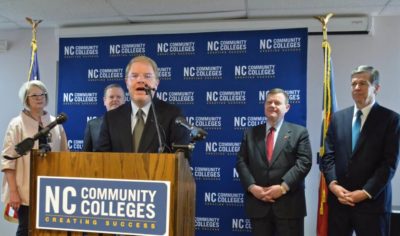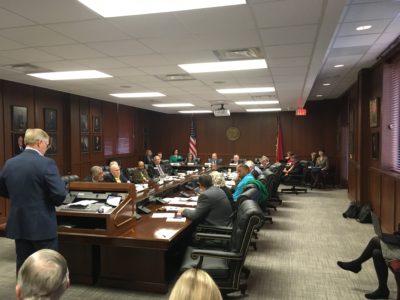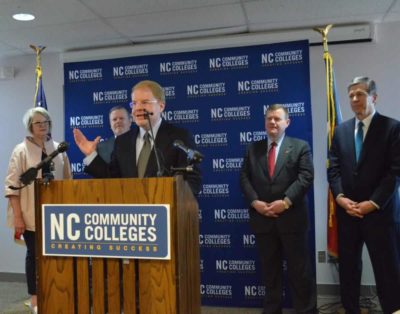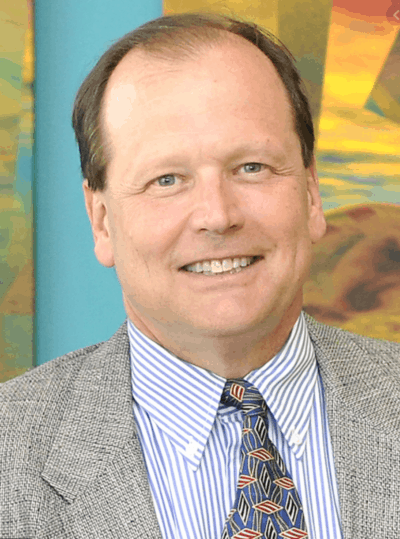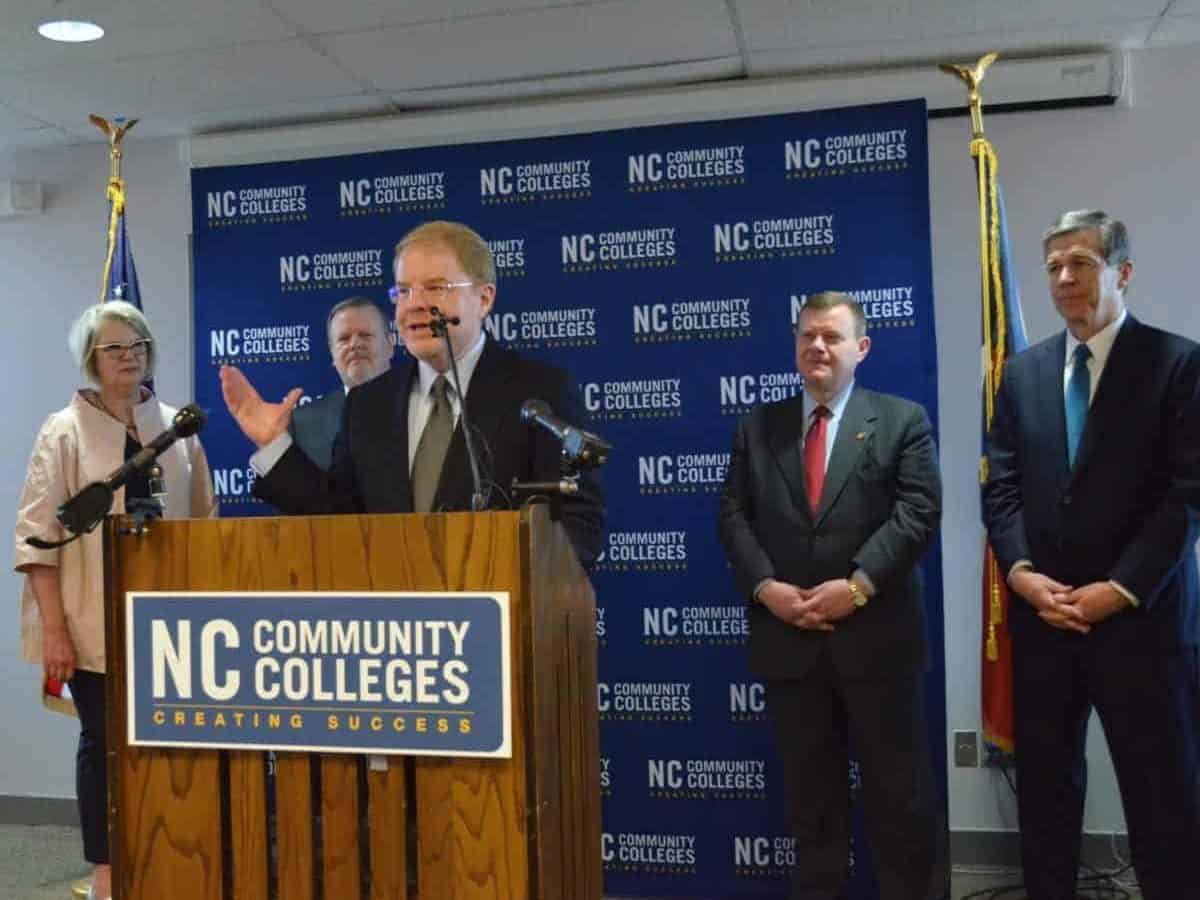

Peter Hans is approaching his final days as president of the North Carolina Community College System while also serving as president-elect of the UNC system. Hans’ two more-than-full-time jobs have kept him busy these last few weeks, but he made time for a conversation that lasted nearly an hour.
Hans and I chatted about his tenure as head of the community colleges, what’s next for higher education in North Carolina, racial equity, and attainment.
Hans reflects on his tenure
On May 2, 2018, Hans was approved as president of the community college system in North Carolina during a meeting that lasted mere minutes. Hans’ approval was swift in part because of the bipartisan support his candidacy received from Gov. Roy Cooper, Senate Majority Leader Phil Berger, and Speaker of the House Tim Moore. In June, he received the same endorsement when he was named president-elect of the UNC system.
Hans’ bipartisan relationships proved helpful during his tenure at the community college system. Alongside his colleagues, and with the support of increased lobbying from college presidents across the state, the system saw enrollment growth, funding for career coaches, IT upgrades, and more.
The key, per Hans, is the “unified system response” on all of these issues, and he hopes to see that remain true.
During this summer’s legislative session, the system secured $41.5 million in funding to support enrollment increases. Hans also spoke with us about a few other accomplishments he hopes to see for the system before his tenure concludes.
He pointed to faculty pay as one critical, unfinished component of the legislative agenda for the system. As he told me, “Our compensation for community college faculty and staff lags the nation.”
During Hans’ final State Board of Community Colleges meeting, he announced a new System Advisory Council Initiative on Diversity, Equity, and Inclusion. He appointed Thomas Walker, president of Wayne Community College, and Don Tomas, president of Southwestern Community College, to lead it.
In the announcement memo, Hans wrote: “The initiative will focus on identifying institutional or policy-related inequities limiting opportunities for students, faculty, and staff, and making recommendations to address them. I’d specifically like you to review the State Board Code and sample college policies for elements that may negatively impact students of color. Finally, you will develop guidelines for colleges to use to examine their own policies. System Office staff and other professional experts will be made available to assist you in this work. In consultation with the System president, you may also seek additional expertise from the colleges.”
Hans spoke of the importance of this work during our interview.
What’s next
Hans and his team had to move quickly to meet the challenges of COVID-19 in the spring. The state’s 58 community colleges had to transition most of their classes online in a mere two-week stretch in March.
And now, as Hans transitions, all of our higher education institutions are staring down the barrel of a fall start date while the pandemic continues.
“It’s imperative we move forward in the fall,” Hans said. “Do so safely, emphasizing the health of all concerned. But do not lose focus on the fact that our students cannot afford more downtime. I mean, there are growing disparities when students can’t be in school. I think this is particularly true of the public schools. But it’s also true of community colleges and the universities.”
When Hans was announced as president-elect of the UNC system, numerous statewide education leaders and stakeholders released statements. Bill McBrayer, a member of the State Board of Community Colleges, issued a particularly noteworthy one, after a conversation with Hans on the future of the community college system and Hans’ role.
McBrayer’s statement read in part, “The president assured me that he would continue to be an advocate for community colleges, and would ensure that North Carolina students have a smooth transition from community colleges to universities.”
Hans echoed that promise during our conversation.
One noteworthy point from Hans’ comments was his pledge to explore common course numbering. “I would like to fully explore what a common course catalog looks like,” he said, “if not at every institution in the UNC system, then at least at most. Because as you know, the 17 institutions vary significantly in mission. That’s why I say if not all, then most. But there’s a way to improve this. There’s a way to streamline this that saves time and money for our students, and in a way that benefits both systems.”
We closed our conversation with a discussion around the cost of higher education for North Carolina families, as well as the future of the higher education business model.
Hans put it plainly: “If the costs of higher ed continue to grow, they’re going to outpace North Carolinians’ ability to pay for them.”


